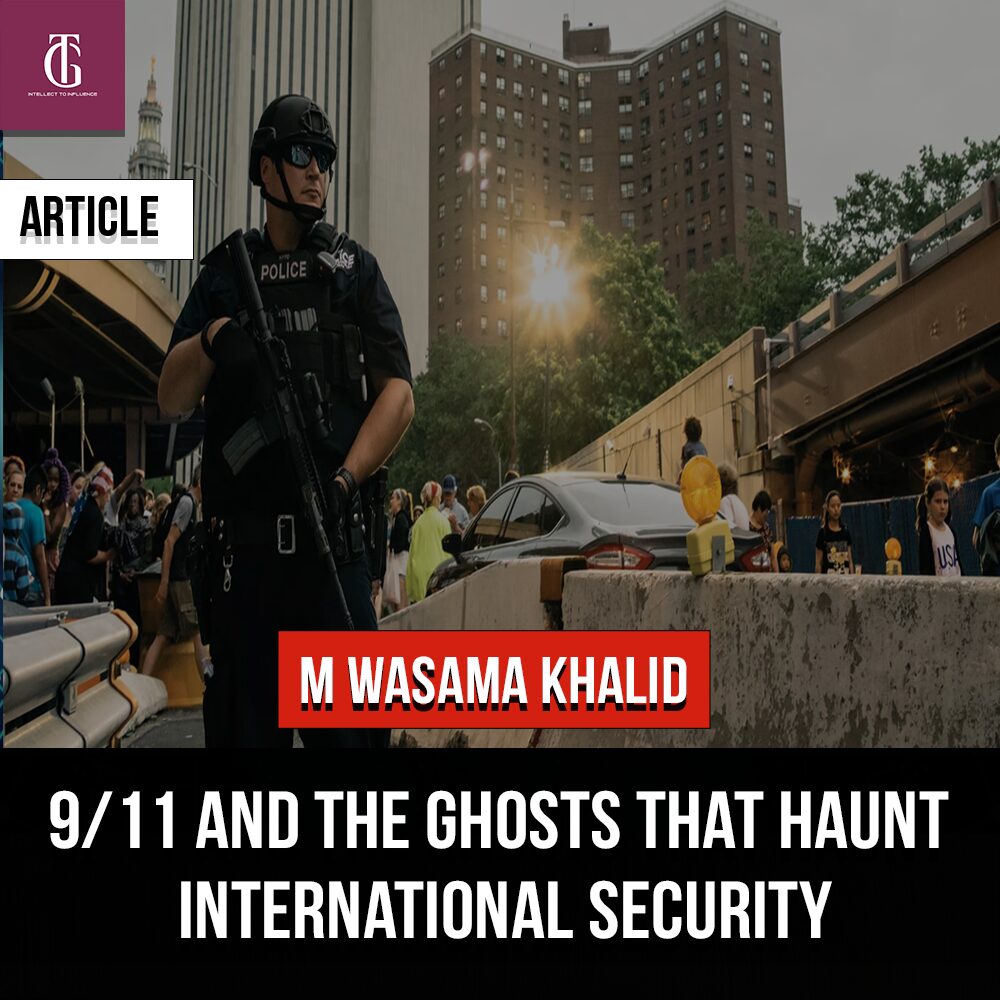
The effects of 9/11 on various approaches to the study of international security draws attention to the scholarly discussion and traditional reaction to 9/11. 9/11 is considered the benchmark that changed the concept of International Security Studies after the cold war. Despite the effects of September 11 on the field of international security studies, the field has not fundamentally altered. The global war on terrorism has left a legacy of dividing opinions between western countries and the rest of the globe. It’s been called the “cold war’s” successor. The global war on terrorism has influenced domestic policy in the United States and Europe and has increased the body of literature on terrorism.
The global war on terrorism shifted the emphasis of warfare from relations between states to those between the state and non-state actors. It was a huge event that altered worldwide politics and had an effect on international Security Studies. The 9/11 attacks, according to traditionalists and realists, were an attempt to undermine American sovereignty. They viewed the interstate as a study in their agenda.
However, those outside a nation-state framework carried out the 9/11 attacks. The United States attempted to equate it with the state, although they were nonstate actors. After 9/11, neorealists rethought what it meant to trust in the rationality of the state, as Al-Qaeda, bin Laden, and Saddam Hussein all represented the logic of the terrorist group. “Bin-laden was a reasonable player, and the assault on the United States of America was part of the greater Middle Eastern program,” write Posen and Walt. The neoconservatives injected their views and principles as an instrument for international relations.
Before the global war on terror, interstate warfare, arms control, and nuclear deterrence were seen as the most important aspects of international security, but after 9/11, terrorism and non-state actors rose to the forefront of discussions. The importance of nuclear deterrence and US rivalry with Iran and Iraq have also changed in light of the global war on terror. Such would be the outcome if a non-state entity obtained nuclear weapons. Those who care only about tradition were alarmed by this.
The war on terror has altered conservative rhetoric, but many themes from before 9/11 have persisted. The continuation of the discussion on democratic peace theory, the theoretical study of the source of the conflict. Israel-Palestine conflict, and improvement over the literature on middle eastern security. The debate over great power politics that began with the conclusion of the cold war has persisted even during the global war on terrorism.
Discussion of the rising of China and the deterioration of relations between the United States and the People’s Republic of China because of the Taiwan problem. North Korea’s commitment to regional stability in East Asia and its pursuit of nuclear weapons capability has persisted in the wake of 9/11.
In the worldwide fight against terrorism, Europe stands with the United States and NATO, but in the invasion of Iraq, Europe (particularly Germany and France) stands firmly against the United States. As with China’s rise, neorealists see Europe as a counterweight to the United States. In the 1990s technology (BMD, and RMA) was the major driving factor for the traditionalist. Concern that a rogue state might acquire nuclear weapons and increase its military might as a result of the global war on terror has only increased.
Different theoretical traditions (including poststructuralism, postcolonialism, feminism, critical constructivism, and the Copenhagen school) see Security as a discourse with quite different implications. 9/11 is an act of terror, war rather than an accident is also a debate. When the United States and the United Kingdom invaded Iraq, they claimed the country had weapons of mass destruction; when they failed to uncover any such weapons, they shifted their rhetoric to focus on international human rights protection.
During the course of the global war on terror, a variety of think tanks were established to provide critical analysis of the policy, and international security studies began high-level policy involvement. Another reason we haven’t seen an intellectual history of ISS is because writing such a history requires a clear notion of what is and isn’t part of ISS, and the demarcation of ISS has been debated, particularly since the late 1980s.
Academic discussions in the 1980s and 1990s had a significant influence on ISS by bringing a wide variety of epistemological and ontological questions that had not previously been of great interest within the sub-field.

Muhammad Wasama Khalid
Muhammad Wasama Khalid is pursuing a degree in International Relations at the National Defence University. He tweets at @WasamaKhalid and can be reached at wasamakhalid@gmail.com





